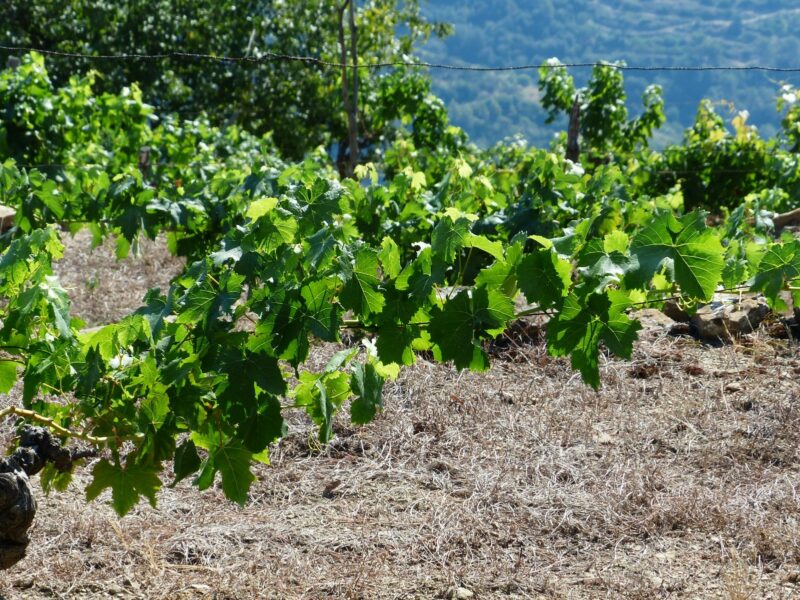
What Do You Think?
Twenty-sixth Sunday of the Year. Fr Dermot Morrin preaches on the parable of the two sons.
‘What do you think?’ In the city of Jerusalem that week many people would have asked this very question, not about the parable, but about this Jesus of Nazareth, who had entered their city on an ass and a colt. Jerusalem was a big place back then. Some say that it might have had as many as thirty thousand inhabitants. But because it was the week before Passover, the city would have been packed out with thousands more pilgrims. It was a far cry from the fishing villages around the Sea of Galilee. Jesus was among the many pilgrims who came up from Galilee. In Jerusalem, Galileans stood out as country folk. Galilee was a region with its own identity and history. Isaiah had called it ‘Galilee of the nations’ (Is 9:1) because it had quite a mixed population. Being at some distance from the religious authorities in Jerusalem, adherence to the Law could not be controlled as tightly in the region. Nobody would have expected that the Messiah would be a Galilean from a small back water place such as Nazareth.
Jesus had walked to Jerusalem among the crowds from Galilee. However, when he entered the city, he was riding on an ass with a colt by its side. You could imagine how he would have stood out above his fellow Galileans who would all have been on foot. But Matthew tells us that this was deliberate. It evoked a prophetic oracle about a king who enters Jerusalem to establish universal peace and his kingdom. It was a daring act. He followed it up by driving out traders from the Temple area and then by healing the blind and the lame. To the eyes of the chief priests and the elders, this Galilean prophet had to be an imposter, but in that overcrowded city, full of fervour, they could see also that he actually posed a direct and credible threat to their religious authority and their status quo. Matthew says that all the city was stirred by his entry. The word he used suggests something being shaken up as they said one to another ‘What do you think?’
The parable which we hear today directly challenges the chief priests and the elders, because they were indeed the ones who said ‘Lord, Lord’, but whose religious adherence was like a house build on sand (Mt 7:26). They are the second son, who said that he would go to work in the vineyard, but then didn’t. Actually he said ‘Yes, Sir’. This further underlined his hypocrisy because the word translated as ‘Sir’ is Kurios or Lord, which is the word used in the Gospel for God and which Christians would use for Jesus. He tells them that the tax collectors and the harlots will go into the kingdom of God before them. What an outrageous thing to say!
And if you think of the Matthew who wrote the gospel as Matthew who was once a tax collector, then these words have even more significance.
If there was just one Matthew then he must have heard the Sermon on the Mount, but he didn’t follow. Perhaps, like Zacchaeus the tax collector in Luke’s gospel, he thought himself unworthy and so hesitated. But Jesus would come to his tax office, and say to him directly ‘Follow me’ and then Matthew would follow without hesitation. This Matthew is himself the first son.
But just before the calling of Matthew Jesus had healed a paralytic. To that man Jesus said, ‘Take heart son, your sins are forgiven’, and to prove this was true, he told him ‘Rise and walk’ and the man did just that (Mt 9:1-7). But if Matthew witnessed this miracle or heard about it, he would have noticed that actually Jesus addressed the man using the Greek word for a child. For me this opens up a much fuller way of hearing this parable. It is far more than a sharp jab at the priests and the elders. For those with ears to hear, it is about God’s call to each of us. The man had two sons. But what you don’t hear in this English translation is that the word translated as ‘son’ is the same word used to address the paralytic and it usually means a child in Matthew’s Gospel. So hear his parable again as child being addressed by a loving father. The order becomes an invitation, ‘Child, go and work in the vineyard today.’ And as a child might do, the first refused to go but afterwards went. I like the word, ‘afterwards’ because in it I see the grace of God at work in a hesitant heart. The seed that was planted needed time to grow. And therein is the awesome beauty of his kingdom, of his grace in our lives, and of a God who will address us tenderly as his children and will wait for us. The chief priests and the elders could not see the beauty of tax collectors and the harlots repenting at the preaching of John, but Matthew could.
So what do you think?
Readings: Ezekiel 18:25-28 | Philippians 2:1-11 | Matthew 21:28-32
Image: detail from ‘Watchtower in a Vineyard in Israel’ photographed by Ian Scott (CC BY-SA 2.0)



Dcn John Cruz
Fr Morrin,
Thank you! I appreciate how you brought to light Our Father’s never ending love. Pax
Catherine
Thank you, Father Dermot. This is inspiring and encouraging too.